Green hair from Copper leaching in Water!
clover8
15 years ago
Related Stories
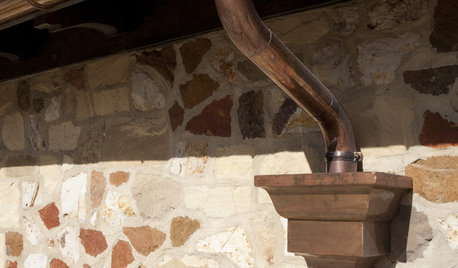
HOUSEKEEPINGProtect Your House From Winter Water Damage
Avoid costly repairs by learning to spot potential problem areas before water damage is done
Full Story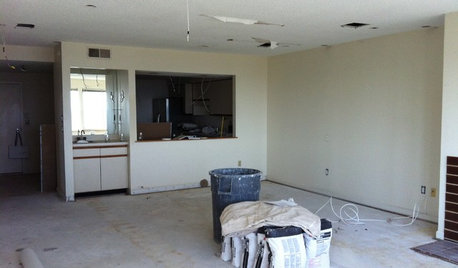
DISASTER PREP & RECOVERYRemodeling After Water Damage: Tips From a Homeowner Who Did It
Learn the crucial steps and coping mechanisms that can help when flooding strikes your home
Full Story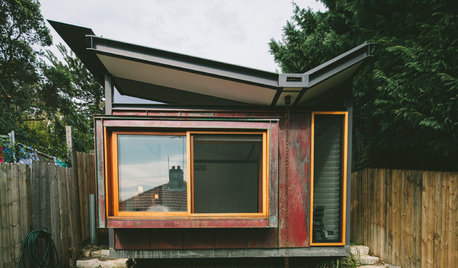
CURB APPEALModern Materials: Copper, Architecture's Natural Beauty
The rich patina is just the beginning — copper for home exteriors is strong, shapable and highly recyclable
Full Story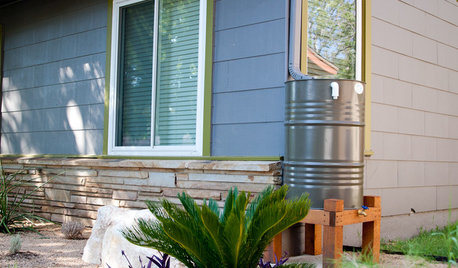
GREEN DECORATINGEasy Green: Big and Small Ways to Be More Water-Wise at Home
These 20 tips can help us all make the best use of a precious resource. How do you save water in summer?
Full Story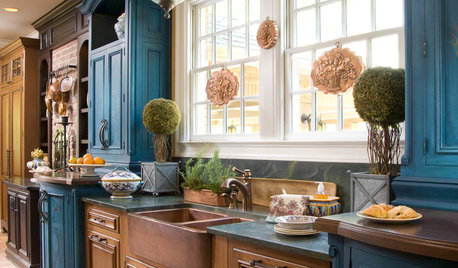
KITCHEN DESIGNKitchen Sinks: Antibacterial Copper Gives Kitchens a Gleam
If you want a classic sink material that rejects bacteria, babies your dishes and develops a patina, copper is for you
Full Story
DECORATING GUIDESPop Culture Watch: 12 Home Trends from the '80s Are Back
Hold on to your hat (over your humongous hair); interior design elements of the 1980s have shot forward to today, in updated fashion
Full Story
COTTAGE STYLEHouzz Tour: Beach Shack Reborn as a Copper-Clad Cottage
A tranquil home with a copper exterior lets in ocean air, sunlight and greenery on a challenging site
Full Story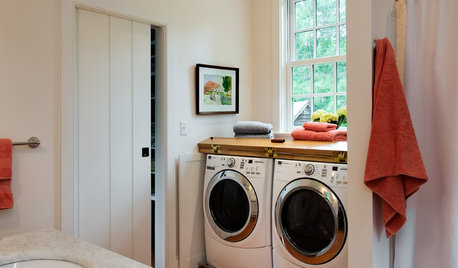
GREEN BUILDINGWater Sense for Big Savings
Keep dollars in your pocket and preserve a precious resource with these easy DIY strategies
Full Story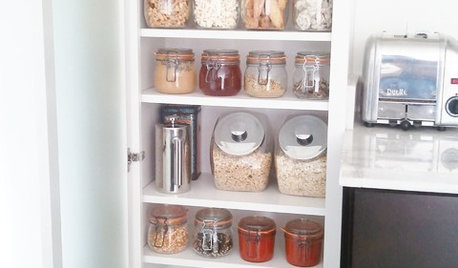
HEALTHY HOME6 Tips From a Nearly Zero-Waste Home
Lower your trash output and increase your quality of life with these ideas from a mom who did it to the max
Full Story
GREEN BUILDINGChampioning the Solar House, From the 1930s to Today
Homes throughout history that have used the sun offer ideas for net-zero and passive homes of the present, in a new book by Anthony Denzer
Full StoryMore Discussions








alphonse
dan_martyn
Related Professionals
Worcester Plumbers · Channahon Handyman · Hopewell Kitchen & Bathroom Remodelers · Beverly Hills Kitchen & Bathroom Remodelers · Fort Pierce Kitchen & Bathroom Remodelers · Garden Grove Kitchen & Bathroom Remodelers · Gilbert Kitchen & Bathroom Remodelers · North Arlington Kitchen & Bathroom Remodelers · Republic Kitchen & Bathroom Remodelers · Roselle Kitchen & Bathroom Remodelers · Lawndale Kitchen & Bathroom Remodelers · South Jordan Kitchen & Bathroom Remodelers · Cave Spring Kitchen & Bathroom Remodelers · North Chicago Kitchen & Bathroom Remodelers · Glenn Heights Kitchen & Bathroom Remodelerswa8b
brickeyee
clover8Original Author
suburbanmd
maryland_irisman
HU-607126105